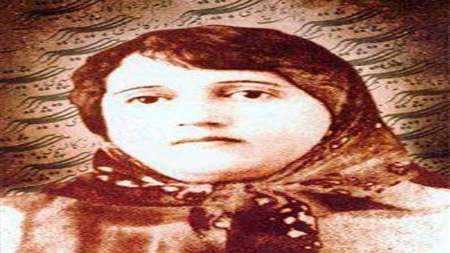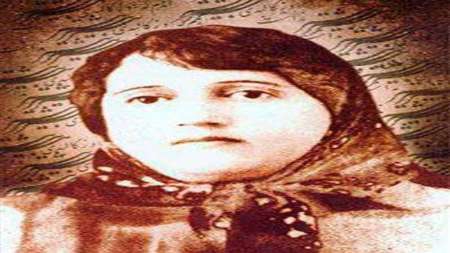 Iranian poetess, Parvin Etesami[/caption]
Iranian poetess, Parvin Etesami[/caption]Tehran, March 16, IRNA � The March 16 is marked as Parvin Etesami Day in the Iranian calendar to commemorate the most celebrated female Iranian poetess.
Parvin was born on March 16, 1907 in Tabriz, East Azarbaijan province.
According to prominent linguist, Ali Akbar Dehkhoda, her given name was Rakhshandeh.
She spent her early years in Tehran with her father, Yousef Etesami (Etesam al-Molk), under whom she gained knowledge of Arabic and Persian literature.
In her short life (death on April 5, 1941), she managed to attain great fame among Iranians. Parvin was about seven or eight years old when her poetic ability blossomed. In 1921-22, some of her earliest known poems were published in the Persian magazine 'Bahar' (Spring).
Parvin's poetry follows the classical Persian tradition in form and substance. There are approximately 42 untitled Qasideh and Qet'eh (another form of Persian poetry) in her anthology. These works follow didactic and philosophical styles of Sanai and Naser Khosro Qobadiani. There are also some Ghazals in her anthology, Iran Daily reported.
Parvin's poetry is replete with debate ('monazere' in Persian) between two objects. The technique has been in vogue since the time of the poet laureate of the Samanid and Ghaznavid courts, Abu al-Qasim Hassan ibn Ahmad Unsuri (d. 1040).
Using conventional imagery, she develops the debate by providing a thesis and a corresponding antithesis. Her own observation then appears at the end as synthesis or conclusion.
The major themes of Parvin's poetry are fatalism or predestination; introduction of liberal measures for enlightening the masses; poverty of the masses vis-�-vis the exploitative schemes of the upper class; and the plight of the orphans, the aged, and the destitute.
Among the most important themes in her later compositions, however, is the plight of Iranian women, especially their lack of access to education - the key to entering the society. She eloquently expresses her thoughts about life and death, social justice, education and the importance of knowledge.
By IRNA











